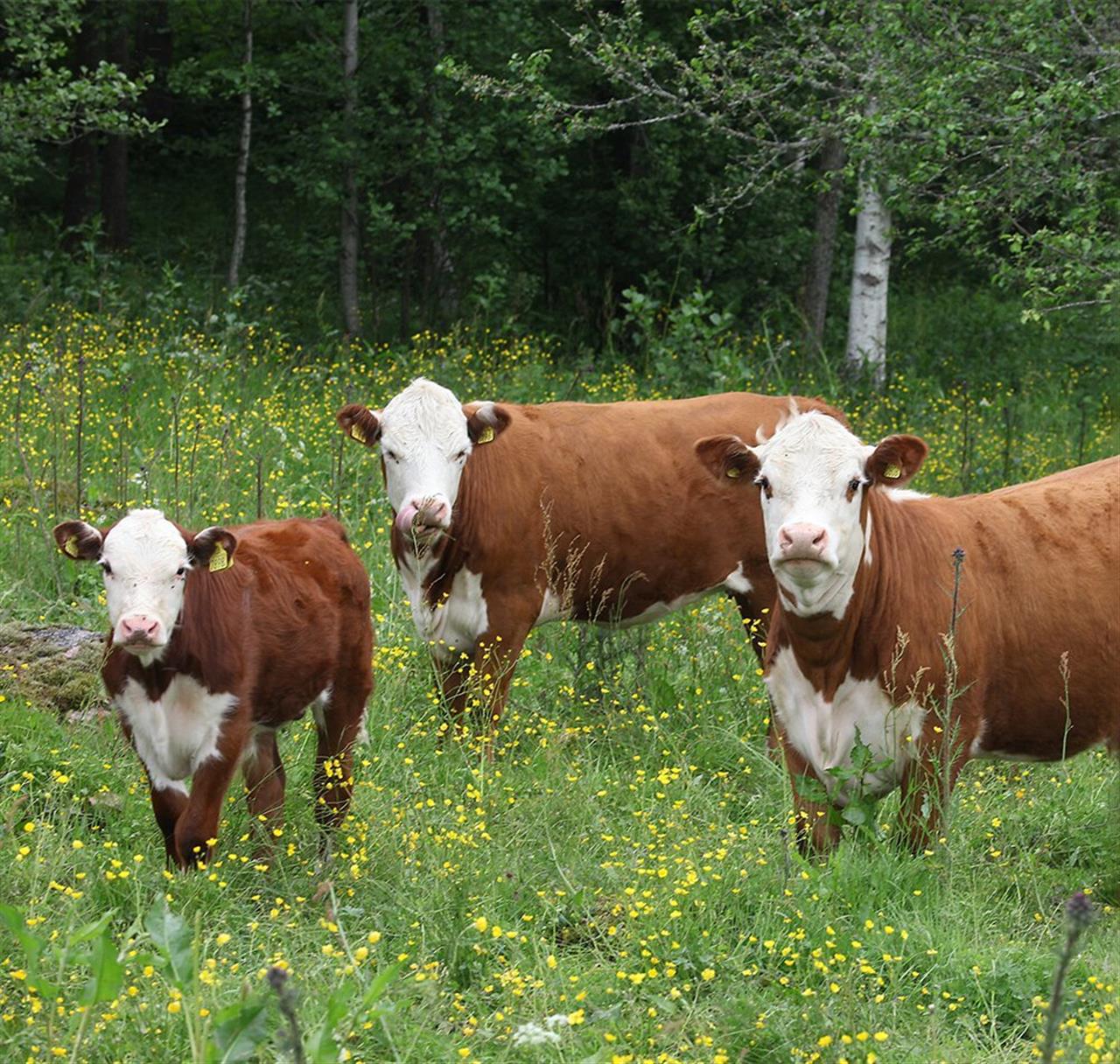Cattle breeding is part of our history

Cattle breeding has been practiced for centuries, with the earliest records dating back to approximately 10,000 years ago in Turkey. Cattle were initially raised for their meat and milk, but over time they have also been used for draft work and leather production.
Today, cattle breeding is a global industry with different regions specializing in various breeds that are tailored to their local climate and market demands. In Europe and North America, dairy cattle such as Holsteins are popular while in Brazil, the preferred breed is the Zebu which is well-adapted to hot climates.
Selective breeding is crucial in improving traits such as disease resistance and productivity (in terms of milk or meat yield), with genetic testing becoming increasingly common in modern cattle.
Strong genetics in North European cattle breeding
Cattle breeding has been a crucial aspect of agriculture in Northern Europe for centuries. Many breeds, such as the Danish Red and Swedish Red and White, have become well-known internationally for their high milk production and strong genetics. Cattle farming also plays an important economic role in the region, with exports of beef and dairy products bringing in significant revenue.
However, cattle breeding in Northern Europe is not without challenges. Climate change has led to increasingly unpredictable weather patterns, impacting grazing land and feed availability. Cattle farmers also face pressure from animal welfare activists, leading to changes in practices such as the phase-out of individual stalls for pregnant cows. Despite these obstacles, Northern European cattle breeders continue to strive for sustainable and ethical methods of raising livestock.
Cattle breeding made better by experts
Cattle breeding plays a crucial role in the dairy and beef industry. By cooperating with experts on the field, you can gain advantage in the process of breeding the best possible cattle. A team of experts is constantly researching and developing new solutions for livestock improvement, such as selective breeding programs and genetic testing. These efforts result in healthier cows with increased milk production and improved meat quality. They are dedicated to helping you achieve successful and profitable cattle farming operations through an innovative approach in cattle breeding. Additionally, there is a mantra to strive to improve the overall health and well-being of your animals, ensuring ethical and sustainable production methods. By investing in advanced cattle breeding techniques, you can trust that you will get support every step of the way in achieving your goals as a dairy or beef farmer.